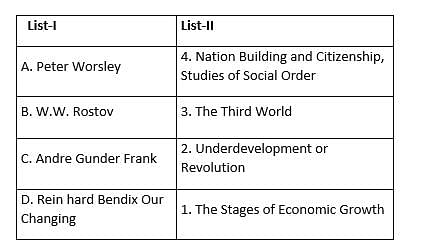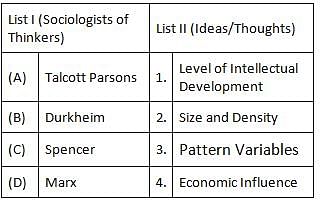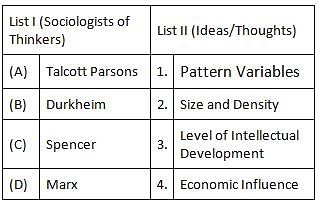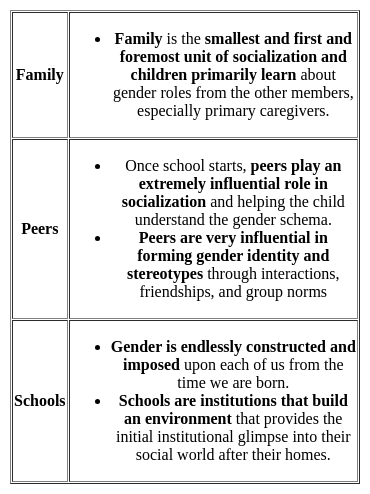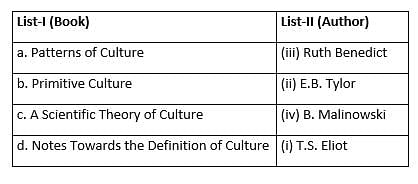UGC NET Paper 2 Sociology Mock Test - 2 - UGC NET MCQ
30 Questions MCQ Test UGC NET Mock Test Series 2024 - UGC NET Paper 2 Sociology Mock Test - 2
Consider the following states:
1. Bihar
2. West Bengal
3. Delhi
Which of the following is the correct sequence in terms of population density?
Direction: Match List-I with List-II and select the correct answer by using the codes given below the lists-
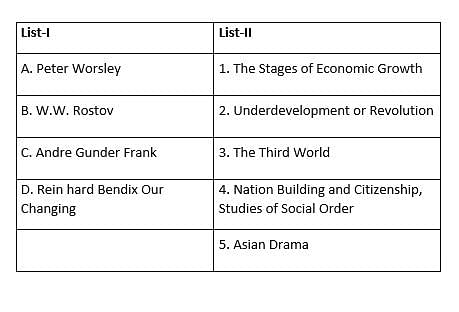

Manifest functions of an institution are those which are:
Participant observation methods is ideally suited for the study of
1. tribal culture
2. national culture
3. ethnographic study
4. phenomenon of globalisation
Select the correct answer using the codes given below
The term triangulation indicates
(i) the use of at least three investigators.
(ii) the use of at least three data-sets.
(iii) the use of at least three theoretical perspectives.
(iv) the use of more than three methods of data collection.
Choose the correct one from the following:
Question: Which among the following authors critically explored the modern construction of cultural identities and problems associated with using broad faith labels by diaspora groups?
Religion, gender, economic background and even learning styles are all notable factors of____ to be considered for effective instruction and learning.
Which one of the following is not true about Marxian Socialism?
"Caste is a product of race that came to India along with Aryans", was said by
A researcher wants to study the effect of sleep duration on the weight of the people over a period of time. Which kind of research is this?
Which one of the following is not true of an institution?
Match List - I with List - II and select the correct answer from the options.
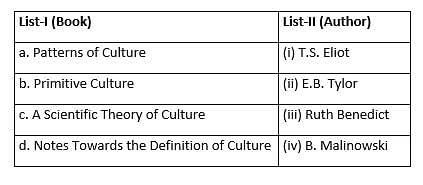
"The Protestant Ethic and the Spirit of Capitalism" was written by:
A young woman who turns herself into a religious worker has a strong:
The system of rewards leads to a system of stratification’ may be attributed to the _________.
Agricultural and Processed Food Products Export Development Authority was established by the Government of India in:
Who among the following has classified status in terms of salient status, dominant status and controlling status?
In which case reference does the 'Sexual Harassment of Women at Workplace' Act enshrines and encompasses almost all the guidelines given?
|
16 docs|120 tests
|


